Filter by
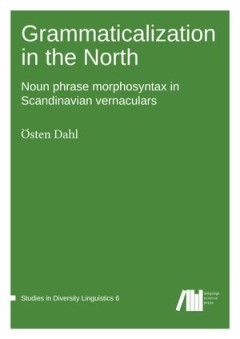
Grammaticalization in the North : Noun phrase morphosyntax in Scandinavian ve…
This book looks at some phenomena within the grammar of the noun phrase in a group of traditional North Germanic varieties mainly spoken in Sweden and Finland, usually seen as Swedish dialects, although the differences between them and Standard Swedish are often larger than between the latter and the other standard Mainland Scandinavian languages. In addition to being conservative in many respe…
- Edition
- Vol. 6.0
- ISBN/ISSN
- 9783944675558
- Collation
- -
- Series Title
- -
- Call Number
- 400 DAH g

A Grammar of Tariana, from Northwest Amazonia
This is a comprehensive reference grammar of Tariana, an endangered Arawak language from a remote region in the northwest Amazonian jungle. Its speakers traditionally marry someone speaking a different language, and as a result most people are fluent in five or six languages. Because of this rampant multilingualism, Tariana combines a number of features inherited from the protolanguage with pro…
- Edition
- -
- ISBN/ISSN
- 9781107050952
- Collation
- -
- Series Title
- -
- Call Number
- -
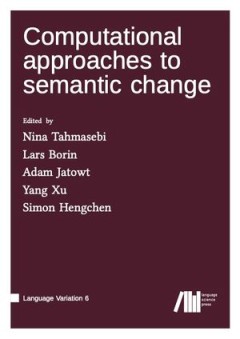
Computational approaches to semantic change
Semantic change — how the meanings of words change over time — has preoccupied scholars since well before modern linguistics emerged in the late 19th and early 20th century, ushering in a new methodological turn in the study of language change. Compared to changes in sound and grammar, semantic change is the least understood. Ever since, the study of semantic change has progressed steadily,…
- Edition
- Vol. 6
- ISBN/ISSN
- 9783961103126
- Collation
- -
- Series Title
- Language Variation vol. 6
- Call Number
- 400 COM

Corpus Linguistics and 17th-Century Prostitution : Computational Linguistics …
Corpus linguistics has much to offer history, being as both disciplines engage so heavily in analysis of large amounts of textual material.This book demonstrates the opportunities for exploring corpus linguistics as a method in historiography and the humanities and social sciences more generally. Focusing on the topic of prostitution in 17th-century England, it shows how corpus methods can assi…
- Edition
- -
- ISBN/ISSN
- 9781472506092
- Collation
- 272 halaman
- Series Title
- -
- Call Number
- 400 MCE

Yorùbá Yé Mi : A Beginning Yorùbá Textbook
The Yorùbá Yé Mi textbook, combined with an open access, multi-media website, is an interactive, communicative, introductory Yorùbá program. It provides college/university students with basic listening, speaking, reading and writing skills of language learning in Yorùbá. It exposes the learner not only to Yorùbá language in meaningful situations but also to the culture of the Yorùbá-…
- Edition
- -
- ISBN/ISSN
- 9781937963026
- Collation
- -
- Series Title
- -
- Call Number
- 400 MOS y
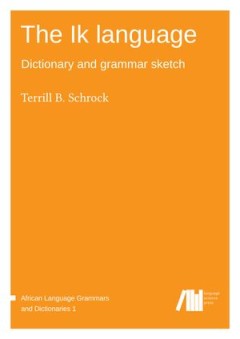
The Ik language : Dictionary and grammar sketch
This book is a dictionary and grammar sketch of Ik, one of the three Kuliak (Rub) languages spoken in the beautiful Karamoja region of northeastern Uganda. It is the lexicographic sequel to A grammar of Ik (Icé-tód): Northeast Uganda’s last thriving Kuliak language (Schrock 2014). The present volume includes an Ik-English dictionary with roughly 8,700 entries, followed by a reversed English…
- Edition
- Vol. 1.0
- ISBN/ISSN
- 9783944675961
- Collation
- -
- Series Title
- African Language Grammars and Dictionaries 1
- Call Number
- 400 SCH i
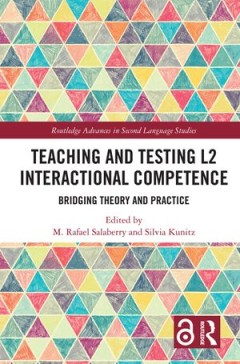
Teaching and Testing L2 Interactional Competence : Bridging Theory and Practice
This volume features the latest research findings on L2 interactional competence to demonstrate the potential for developing and implementing research-based pedagogy that targets interactional competence (IC) in early instruction in a variety of L2 learning and teaching contexts. Incorporating contributions from both leading and emerging researchers in the area, the book is organized into four …
- Edition
- 1
- ISBN/ISSN
- 9781351709118, 1351709119
- Collation
- -
- Series Title
- -
- Call Number
- 370 TEA

A Glossary Or, Collection of Words, Phrases, Names and Allusions to Customs,…
Originally published in 1822, Robert Nares' glossary of antiquated Elizabethan terms is the result of a personal interest in and love of Elizabethan literature. Nares (1753–1829), well known as a scholar and clergyman, was also a keen philologist and antiquary. This glossary was undertaken in his spare time, and compiled over forty years as he was often occupied with various academic and cler…
- Edition
- -
- ISBN/ISSN
- 9781139093781
- Collation
- -
- Series Title
- Cambridge Library Collection - Literary Studies
- Call Number
- -

Climate Change and Journalism Negotiating Rifts of Time
This edited collection addresses climate change journalism from the perspective of temporality, showcasing how various time scales—from geology, meteorology, politics, journalism, and lived cultures—interact with journalism around the world.Analyzing the meetings of and schisms between various temporalities as they emerge from reporting on climate change globally, Climate Change and Journal…
- Edition
- -
- ISBN/ISSN
- -
- Collation
- -
- Series Title
- -
- Call Number
- -
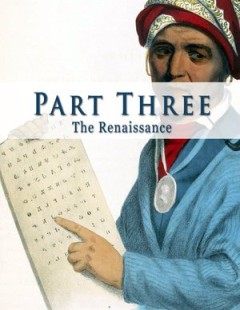
Compact Anthology of World Literature : Part Three, The Renaissance
A world literature class may be the first place that some students have encountered European works, let alone non-Western texts. The emphasis in this anthology, therefore, is on non-Western and European works, with only the British authors who were the most influential to European and non-Western authors (such as Shakespeare, whose works have influenced authors around the world to the present d…
- Edition
- -
- ISBN/ISSN
- 9781940771229
- Collation
- -
- Series Title
- -
- Call Number
- 800 GET c
 Computer Science, Information & General Works
Computer Science, Information & General Works  Philosophy & Psychology
Philosophy & Psychology  Religion
Religion  Social Sciences
Social Sciences  Language
Language  Pure Science
Pure Science  Applied Sciences
Applied Sciences  Art & Recreation
Art & Recreation  Literature
Literature  History & Geography
History & Geography